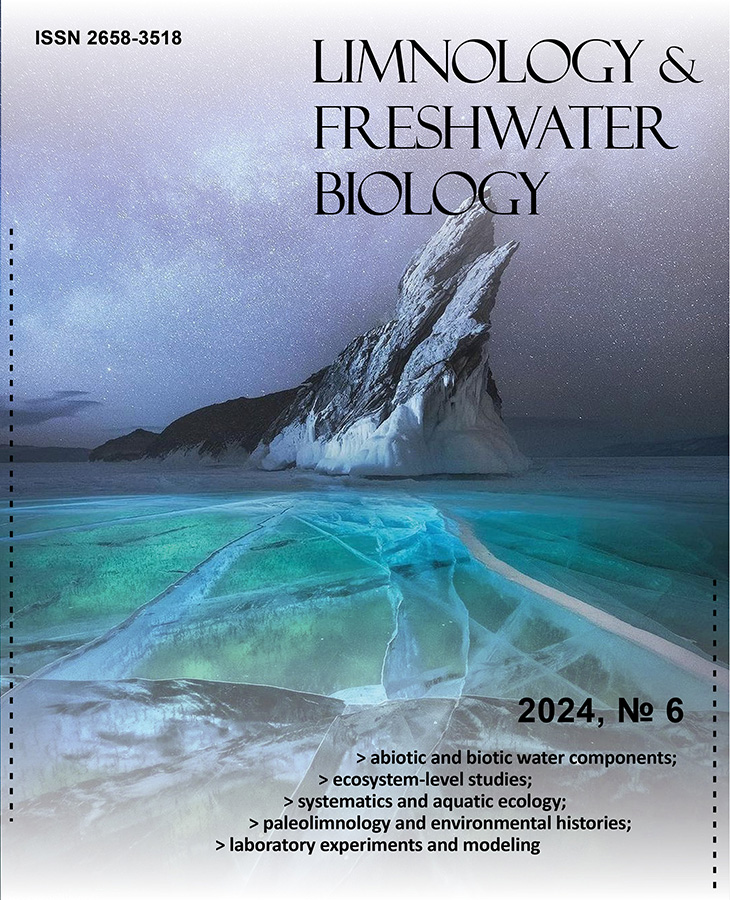Mercury in biosphere: environmental and geochemical aspects
- Authors: Fedotov A.P.1, Komov V.T.2, Tatsiy Y.G.3, Mashyanov N.R.4
-
Affiliations:
- Limnological Institute, SB RAS
- Papanin Institute for Biology of Inland Waters Russian Academy of Sciences
- Vernadsky Institute of Geochemistry and Analytical Chemistry of the Russian Academy of Sciences
- Lumex-marketing LLC
- Issue: No 3 (2022)
- Pages: 1244-1244
- Section: Articles
- URL: https://journals.rcsi.science/2658-3518/article/view/289372
- DOI: https://doi.org/10.31951/2658-3518-2022-A-3-1244
- ID: 289372
Cite item
Full Text
Full Text
Mercury is recognized as a global environmental pollutant due to its toxicity, mobility and ability to accumulate in the environment.
The Minamata Convention on Mercury that took effect on 16 August 2017 resulted from long-term scientific research and was based on Global Mercury Assessment as part of the United Nations Environment Program (UNEP), including the information about mercury as a chemical substance and its health effects, sources, long-range transport, and mercury-related prevention and control technologies.
The text of the Convention indicates that mercury is a chemical of global concern due to its long-range transport in the atmosphere, persistence in the environment after its occurrence as a result of anthropogenic activity and potential to bioaccumulate in ecosystems as well as due to significant negative consequences for human health and the environment caused by its impact.
Mercury-related issues are regularly discussed in detail within the framework of the largest international conference “Mercury as a Global Pollutant”. However, the representation of the experts from the Russian Federation and the Commonwealth of Independent States (CIS) countries at this conference is minor.
The problem of mercury pollution is also acute for our country. Although Russian Federation has not yet ratified the Minamata Convention, serious attention is traditionally paid to the study of the mercury negative impact on the environment and humans.
In the Russian Federation, the symposium “Mercury in Biosphere: Environmental and Geochemical Aspects” was organized twice: in Moscow (2010) and Novosibirsk (2015). This symposium is actually the only venue where issues relevant for the Russian Federation such as natural and anthropogenic migration of mercury and its impact on the environment and people are discussed.
The third Symposium aims to combine individual studies, forming a general pattern of the state of research in the field of chemistry, biogeochemistry, ecotoxicology, and analytics of mercury in the Russian Federation and the CIS countries. Leading experts are invited to the symposium, who will share their experience in studying mercury cycles in the environment, development and application of the best environmental practices. As a part of the Symposium, a school for young researchers “Interdisciplinary Approach to the Study of Mercury in Various Environmental Objects” will be held where conditions will be created for cooperation and exchange of experience between students from Russian and foreign universities as well as postgraduates and young scientists from scientific centres.
The agenda of the Symposium focuses on the representatives of academic and educational institutions, industrial organizations, and environmental authorities involved in research on this hazardous toxicant.
The materials of the Symposium will serve as a good basis for preparing recommendations to reduce the negative impact of mercury on the natural environment and public health as well as to develop the National Action Plan of the Russian Federation within the framework of the Minamata Convention on Mercury.
About the authors
A. P. Fedotov
Limnological Institute, SB RAS
Author for correspondence.
Email: mix@lin.irk.ru
Russian Federation, Ulan-Batorskaya Str., 3, Irkutsk, 664033
V. T. Komov
Papanin Institute for Biology of Inland Waters Russian Academy of Sciences
Email: mix@lin.irk.ru
Russian Federation, Borok, 152742
Yu. G. Tatsiy
Vernadsky Institute of Geochemistry and Analytical Chemistry of the Russian Academy of Sciences
Email: mix@lin.irk.ru
Russian Federation, Kosygin St., 19, Moscow, 119991
N. R. Mashyanov
Lumex-marketing LLC
Email: mix@lin.irk.ru
Russian Federation, Obruchevykh Str, 1-B. St Petersburg, 195220
References
Supplementary files










